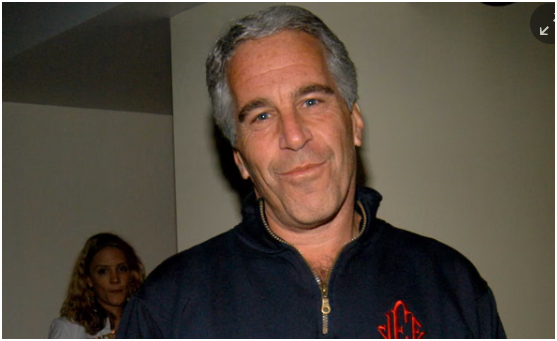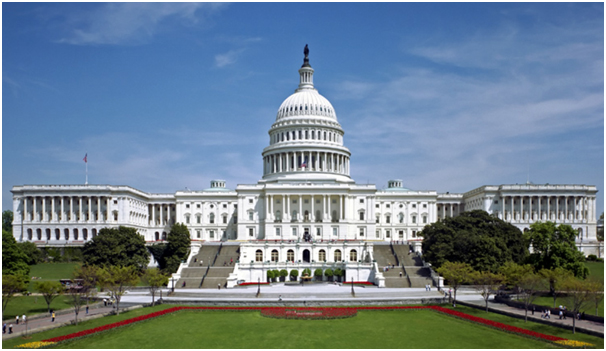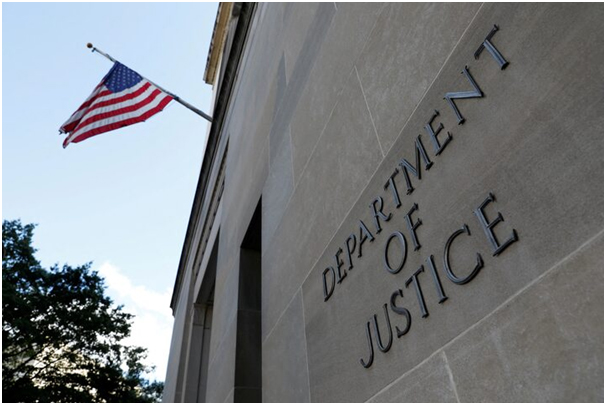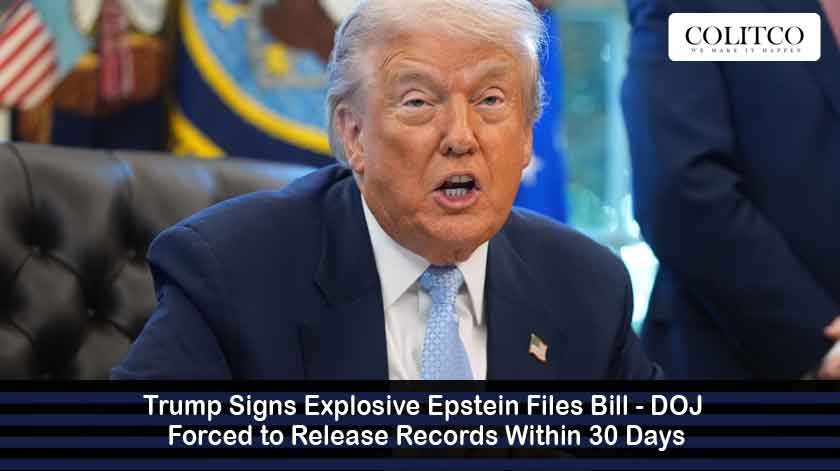The Trump Epstein files release has moved from political controversy to legal reality. President Donald Trump signed legislation on Wednesday compelling the Justice Department to disclose all files related to Jeffrey Epstein.

The Trump signs Epstein bill announcement came via Truth Social rather than a traditional White House ceremony. Under the law, Attorney General Pam Bondi must disclose all non-classified Epstein-related materials within a 30-day period. The US government Epstein case documents must now face public scrutiny after years of speculation.
Congress Drives Trump Epstein Files Release Forward
The House of Representatives overwhelmingly supported the bill on Tuesday with a 427-1 vote. Only Representative Clay Higgins from Louisiana voted against the legislation. The Senate followed by passing the measure through unanimous consent.
Trump signs the Epstein bill marked a dramatic reversal. Trump had previously characterised the largely Democrat-led push as a “hoax”. He maintained this position even after announcing he would sign the measure. The president had the authority to release documents himself, but chose not to exercise that power. The legislation was formally titled the Epstein Files Transparency Act, representing a significant transparency initiative.
Co-led by Representatives Thomas Massie from Kentucky and Ro Khanna from California, the bill gained momentum through unusual cross-party cooperation. This rare bipartisan effort highlighted the widespread public interest in uncovering the full truth about Epstein’s criminal network. The swift Congressional action reflected mounting pressure from both political bases demanding transparency.
Bill Mandates Comprehensive File Disclosure Within Month
The Epstein Files Transparency Act compels the Justice Department to make unclassified documents publicly available in a searchable format. Required materials include all investigations into Epstein and Ghislaine Maxwell, flight logs, travel records, and immunity deals.
The law permits Bondi to withhold information that could jeopardise federal investigations. Officials can redact victims’ identifying information and depictions of child sexual abuse. However, the legislation specifically bars declining disclosure over concerns about “embarrassment, reputational harm or political sensitivity“. The Trump Epstein files release timeline begins immediately.
The bill also mandates disclosure of entities tied to Epstein’s trafficking or financial networks. Internal communications about charging decisions must be released alongside documentation of his detention and death. Details about any file deletions from government systems must also be made public. These comprehensive requirements aim to provide complete transparency about the US government Epstein case handling.
The US Government Epstein Case Investigation History
Jeffrey Epstein pleaded guilty in 2008 to Florida state charges of soliciting prostitution with a minor. He died by suicide in jail in 2019 whilst awaiting trial on federal sex-trafficking charges.

Figure 2: The United States Capitol
The Justice Department previously stated it “did not uncover evidence that could predicate an investigation against uncharged third parties”. Last week, Bondi agreed to investigate Epstein’s connections to Democrats and others. When asked what had changed, she cited “new information, additional information” but declined to elaborate.
Trump Epstein Files Release Shows Historical Connection
Trump was friends with Epstein in the 1980s and 1990s before a falling-out in the early 2000s. Trump accused Epstein of hiring away young female employees from his resort’s spa. The president has said he banned Epstein from Mar-a-Lago.
Released emails show Epstein claimed in 2019 that Trump “knew about the girls” but made no accusation of wrongdoing. Another email from 2011 referred to Trump as “that dog that hasn’t barked”. Trump has consistently denied involvement in any of Epstein’s crimes. The White House maintains that Trump threw Epstein out “for being a creep”.
White House Press Secretary Karoline Leavitt addressed the released emails during a press briefing. She stated the emails “prove absolutely nothing other than the fact that President Trump did nothing wrong”. The administration has emphasised Trump’s decision to distance himself from Epstein decades ago.
In one particularly critical email, Epstein wrote: “I have met some very bad people. None as bad as Trump. Not one decent cell in his body.” These derogatory comments suggest their relationship had deteriorated significantly. Epstein regularly emailed people about Trump, usually in negative terms. The Trump Epstein files release may provide additional context about their association.
Trump Signs Epstein Bill Amid Republican Discord
The Trump Epstein files release controversy sparked rare disunity among Republicans in Congress. The legislation was co-led by Representatives Thomas Massie and Ro Khanna. It garnered vocal support from Democrats and several Republican lawmakers, including Representative Marjorie Taylor Greene.

Figure 3: U.S. President Donald Trump
On Sunday, Trump reversed his longstanding opposition and called on House Republicans to support the bill. He stated, “We have nothing to hide”, whilst continuing to label the scandal a Democrat hoax. Speaker Mike Johnson had stalled the bill for months before the House finally passed it.
US Government Epstein Case Victims Welcome Decision
On Tuesday, legislation backers and Epstein survivors held a news conference urging lawmakers to support the bill. Some survivors directly criticised the president. Jena-Lisa Jones directly appealed to the president to stop politicising the issue.
Family members of Virginia Giuffre, a prominent Epstein victim who took her own life in April, released a statement following the bill signing. Her brother Sky Roberts called the moment “nothing short of monumental”. The family said they await the full release of Epstein files eagerly and “will not stop until the full truth is out”.
Pending Document Disclosure May Answer Long-Standing Questions
The Justice Department said in July that much material is subject to court-ordered sealing. According to a July department memo, most documents would have remained sealed even if Epstein had faced trial. The seal served to protect victims without exposing additional third parties.

Figure 4: The U.S. Department of Justice headquarters
It remains unclear what the department will release in response to the bill. Documents released by the House Oversight Committee included over 20,000 pages from Epstein’s estate. The mentioned prominent figures include Larry Summers and Michael Wolff. The Trump-signed Epstein bill action ensures more revelations may follow.
ALSO READ: Qube Stuns Market at AGM 2025: 27% Revenue Surge, Board Shake-Up & Massive Dividend Lift
Attorney General Must Act Within a Month on Disclosure
The department has 30 days to release all files related to Epstein’s investigation and death. The bill permits redacting identifying information of victims but specifically bars withholding information over embarrassment concerns.
Required documents include internal communications about charging decisions, immunity deals, flight logs, and details about file deletions. The legislation provides exceptions for materials that would jeopardise active investigations or prosecutions. Press Secretary Karoline Leavitt maintained the disclosed emails demonstrate no presidential wrongdoing whatsoever.












